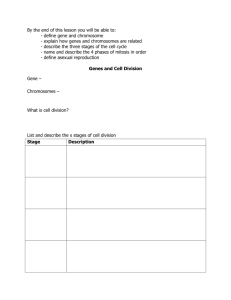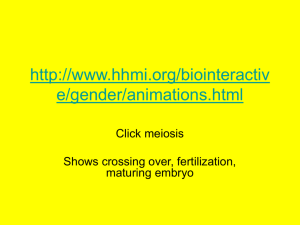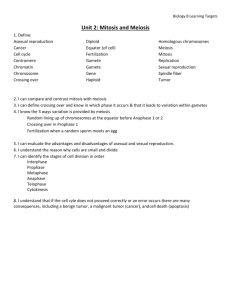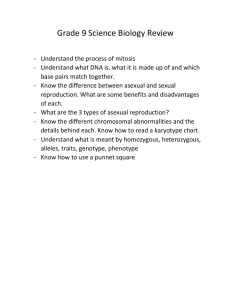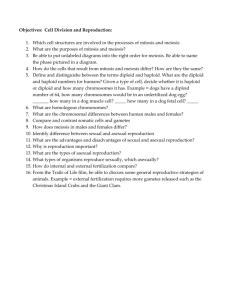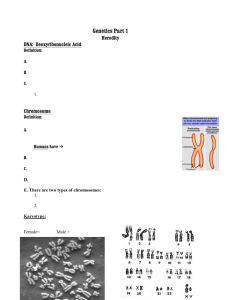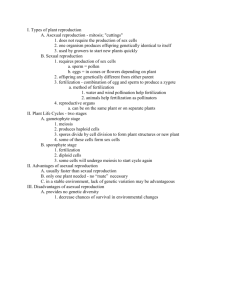Cell Division & Reproduction Test: Tuesday, April 26, 2016
advertisement
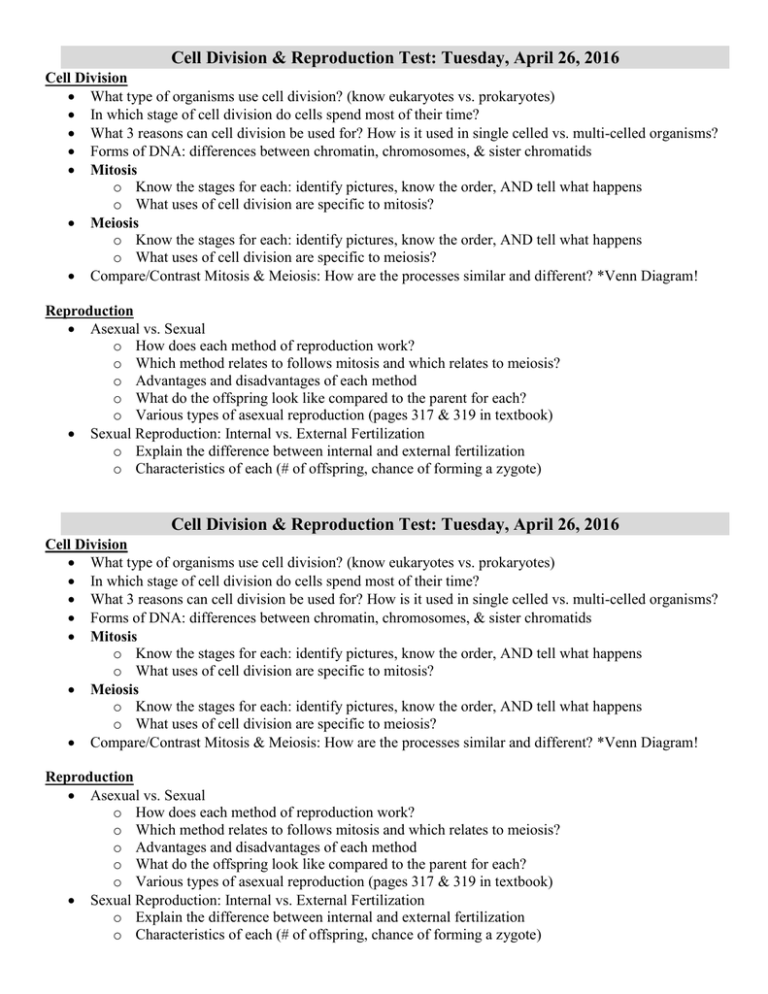
Cell Division & Reproduction Test: Tuesday, April 26, 2016 Cell Division What type of organisms use cell division? (know eukaryotes vs. prokaryotes) In which stage of cell division do cells spend most of their time? What 3 reasons can cell division be used for? How is it used in single celled vs. multi-celled organisms? Forms of DNA: differences between chromatin, chromosomes, & sister chromatids Mitosis o Know the stages for each: identify pictures, know the order, AND tell what happens o What uses of cell division are specific to mitosis? Meiosis o Know the stages for each: identify pictures, know the order, AND tell what happens o What uses of cell division are specific to meiosis? Compare/Contrast Mitosis & Meiosis: How are the processes similar and different? *Venn Diagram! Reproduction Asexual vs. Sexual o How does each method of reproduction work? o Which method relates to follows mitosis and which relates to meiosis? o Advantages and disadvantages of each method o What do the offspring look like compared to the parent for each? o Various types of asexual reproduction (pages 317 & 319 in textbook) Sexual Reproduction: Internal vs. External Fertilization o Explain the difference between internal and external fertilization o Characteristics of each (# of offspring, chance of forming a zygote) Cell Division & Reproduction Test: Tuesday, April 26, 2016 Cell Division What type of organisms use cell division? (know eukaryotes vs. prokaryotes) In which stage of cell division do cells spend most of their time? What 3 reasons can cell division be used for? How is it used in single celled vs. multi-celled organisms? Forms of DNA: differences between chromatin, chromosomes, & sister chromatids Mitosis o Know the stages for each: identify pictures, know the order, AND tell what happens o What uses of cell division are specific to mitosis? Meiosis o Know the stages for each: identify pictures, know the order, AND tell what happens o What uses of cell division are specific to meiosis? Compare/Contrast Mitosis & Meiosis: How are the processes similar and different? *Venn Diagram! Reproduction Asexual vs. Sexual o How does each method of reproduction work? o Which method relates to follows mitosis and which relates to meiosis? o Advantages and disadvantages of each method o What do the offspring look like compared to the parent for each? o Various types of asexual reproduction (pages 317 & 319 in textbook) Sexual Reproduction: Internal vs. External Fertilization o Explain the difference between internal and external fertilization o Characteristics of each (# of offspring, chance of forming a zygote) Other Vocab (to be familiar with): reproduction growth repair multicellular single-cellular prokaryote eukaryote parent cell daughter cell DNA interphase mitosis (PMAT!) cytokinesis meiosis (PMAT I & II) nuclear membrane centrioles spindle fibers chromosomes chromatin sister chromatids centromere homologous chromosomes/pairs haploid diploid asexual reproduction sexual reproduction gametes sex cells sperm cell egg cell body cell recombinant DNA crossing over offspring zygote fertilization internal fertilization external fertilization genetic variation Other Vocab (to be familiar with): reproduction growth repair multicellular single-cellular prokaryote eukaryote parent cell daughter cell DNA interphase mitosis (PMAT!) cytokinesis meiosis (PMAT I & II) nuclear membrane centrioles spindle fibers chromosomes chromatin sister chromatids centromere homologous chromosomes/pairs haploid diploid asexual reproduction sexual reproduction gametes sex cells sperm cell egg cell body cell recombinant DNA crossing over offspring zygote fertilization internal fertilization external fertilization genetic variation
